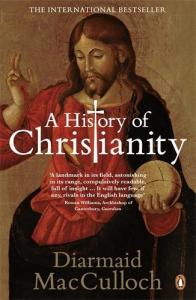The Christian Bible, of course, is the most significant and most foundational book of the Christian religion. To those who don’t know what’s in it, its format, or significance, the Bible just sounds like an ancient book. But it’s not just that–it’s a holy text, rich with teachings, sermons, and motivation that have impacted countless lives across the globe. In this article, we provide a broad overview of the Bible — its composition, origins, theology, and cultural significance.
What is the Bible?
At its core, the Bible is a book of sacred texts that Christians believe to be inspired by God. The term “Bible” comes from the Latin biblia, or “books.” Accordingly, the Bible is not a book but a library of books, written by various authors in various eras and in different literary styles—historical narrative, poetry, prophecy, epistles.
The Bible is Typically Divided into Two Sections
1. The Old Testament (or Hebrew Bible): It contains holy texts for both Judaism and Christianity. It chronicles the creation of the world, the tale of the Israelites, their pact with God, their statutes and prophets, and poetry. It may be broken down into the Pentateuch (the first five books), Historical Books, Wisdom Literature, and the Prophets.
2. The New Testament: It covers the life, teachings, death, and resurrection of Jesus Christ, whom Christians believe to be the Son of God and the Messiah. It has the four Gospels (Matthew, Mark, Luke, and John), which chronicle Jesus’ life; the Acts of the Apostles, which detail the early church; numerous letters (Epistles) from the early church fathers, most notably Paul; and the Book of Revelation, which contains apocalyptic visions.
Historical Context
To truly understand the Bible, you must grasp the history behind it. The Old Testament’s books were primarily written between the 12th and 2nd centuries BCE, amid the backdrop of ancient Near Eastern culture and history. The scribes were often voicing their communities’ post-exilic theological and historical reflections on exile, oppression, and covenant.
The New Testament books were composed in a different era, from the mid-1st to the early 2nd century CE, as the nascent Christian movement unfolded in the Greco-Roman world. There were a lot of different socio-political issues that went into writing it, including the Jewish-Roman wars and Hellenism.
Theological Significance
The Bible is at the center of Christianity, and it serves several vital purposes:
1. Revelation of God: Christians believe the Bible is God’s revelation to humanity, offering insights into God’s character, will, and purpose for creation. It provides solutions to the fundamental questions of existence, virtue, tragedy, and salvation.
2. Authority for Faith and Life: The Bible serves as the ultimate authority for Christian doctrine and ethics. Many churches emphasize Scripture as the “only rule of faith and practice” (Sola Scriptura), claiming that it contains everything necessary for salvation and true spirituality.
3. Source of Spiritual Growth: Through reading and prayer, Christians seek to cultivate a deeper relationship with God. The Bible is bursting with life-altering truths, calling believers to love and forgive, to be compassionate, and to serve.
4. Foundation for Community: The communal aspect of Bible reading and interpretation has played a fundamental role in shaping Christian communities. In private devotion, in corporate worship, and in seminary study, the Bible is a natural magnet that brings Christians together in faith.
Cultural Influence
Beyond its religious significance, the Bible has impacted literature, art, philosophy, and law, to name a few. From Dante to Milton, the literary canon has depended on biblical influences. From Michelangelo’s Sistine Chapel ceiling to recent film adaptations, the Bible has inspired countless works of art.
It has influenced Western law and ethics, too. Much of Western law — whether explicit or implicit, from the inherent dignity of all persons to the imperative of justice and mercy — derives its inspiration from the Bible.
Conclusion
The Bible is a cornucopia of humanity, of divinity, and of morality. Its impact on humankind is immeasurable, yet it continues to inspire belief, doubt, and nurture believers. Whether as Scripture or history, as moral tract or enigma, the Bible sheds light on the bond between humanity and God. The Bible opens a portal to deep theological, historical, and existential ideas that continue to resound today.
A History of Christianity: The First Three Thousand Years
by Diarmaid MacCulloch
Product information
Product Review Score
4.46 out of 5 stars
122 reviews



